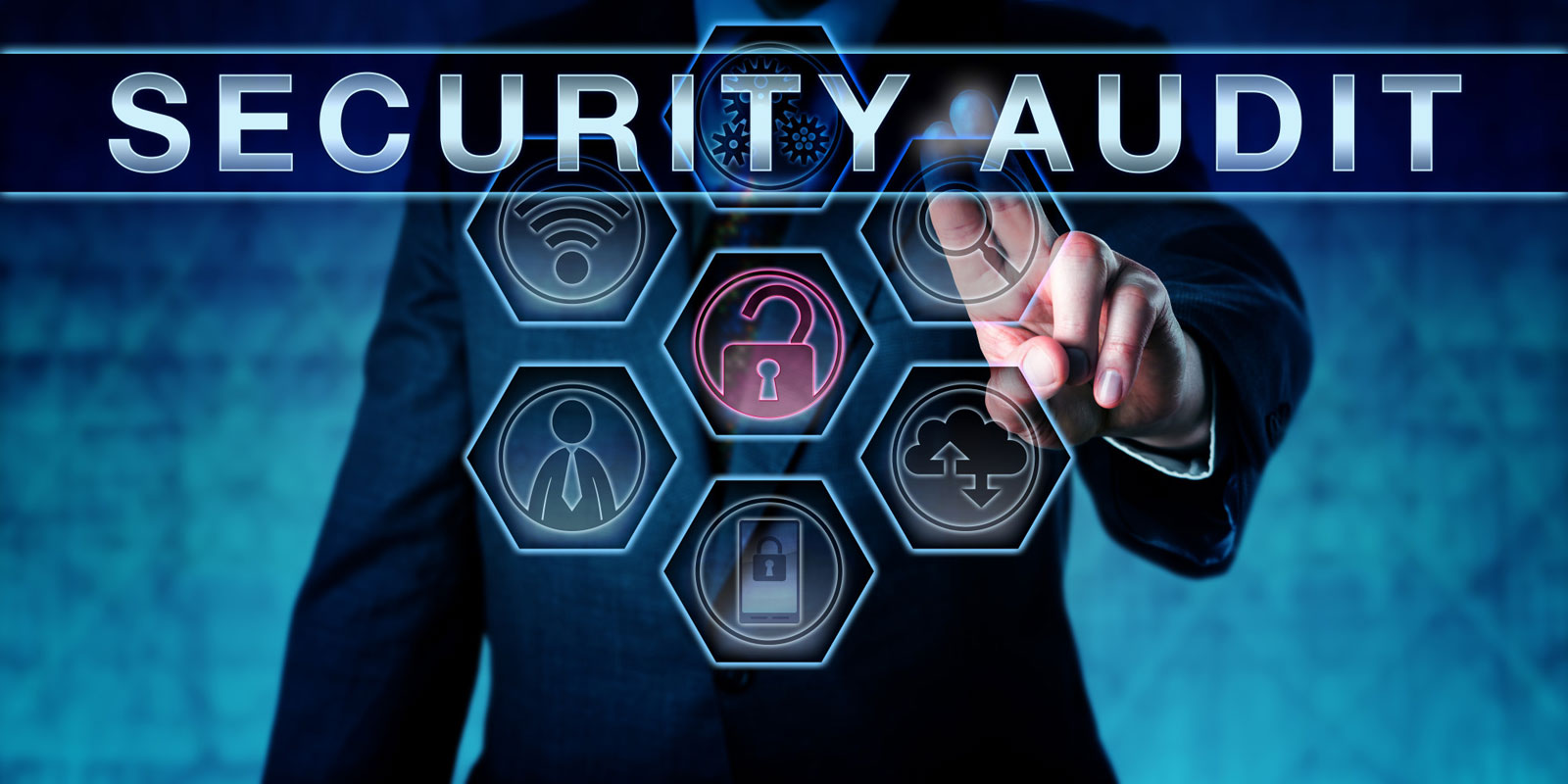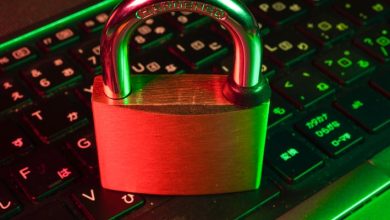The Importance of Regular Security Audits

- The Benefits of Regular Security Audits
- Protecting Your Data with Routine Audits
- Preventing Cyber Attacks Through Regular Audits
- Ensuring Compliance with Security Standards
- Identifying Vulnerabilities with Security Audits
- Enhancing Overall Security with Regular Audits
The Benefits of Regular Security Audits
Regular security audits are essential for any organization to ensure the safety and integrity of their data and systems. These audits help identify vulnerabilities and weaknesses in the security infrastructure, allowing for timely remediation before any potential breaches occur. By conducting regular security audits, companies can stay one step ahead of cyber threats and protect their sensitive information from falling into the wrong hands.
One of the key benefits of regular security audits is the ability to detect and address security gaps before they are exploited by malicious actors. By proactively identifying vulnerabilities in the system, organizations can implement necessary security measures to prevent data breaches and cyber attacks. This proactive approach not only helps in safeguarding sensitive information but also saves companies from the costly repercussions of a security incident.
Moreover, regular security audits can also help in ensuring compliance with industry regulations and standards. Many regulatory bodies require organizations to conduct regular security assessments to maintain compliance with data protection laws. By performing these audits on a consistent basis, companies can demonstrate their commitment to data security and avoid potential fines or penalties for non-compliance.
In addition to enhancing security and compliance, regular security audits can also improve overall operational efficiency. By identifying and resolving security issues, organizations can streamline their processes and minimize downtime caused by security incidents. This, in turn, leads to increased productivity and cost savings for the company.
Overall, regular security audits play a crucial role in maintaining the security and integrity of an organization’s systems and data. By conducting these audits on a consistent basis, companies can stay ahead of cyber threats, ensure compliance with regulations, and improve operational efficiency. Investing in regular security audits is a proactive measure that can help protect businesses from potential security breaches and their associated consequences.
Protecting Your Data with Routine Audits
Regular security audits are essential for **protecting** your **data** from **potential** threats and vulnerabilities. By conducting routine **audits**, you can **identify** any **weaknesses** in your **security** measures and take **appropriate** actions to **address** them. **Data** breaches can have **serious** consequences for your **business**, including **financial** losses and damage to your **reputation**. Therefore, it is **crucial** to **implement** **regular** **audits** to **safeguard** your **data**.
During a **security** **audit**, **experts** will **review** your **systems** and **processes** to **ensure** that they are **compliant** with **industry** **standards** and **best** **practices**. They will **look** for any **vulnerabilities** that **could** be **exploited** by **hackers** or **malicious** **actors**. By **conducting** these **audits** **regularly**, you can **stay** one **step** ahead of **potential** **threats** and **protect** your **data** from **unauthorized** **access**.
In addition to **identifying** **weaknesses**, **security** **audits** can also **help** you **improve** your **overall** **security** **strategy**. By **analyzing** the **findings** of the **audit**, you can **develop** **new** **policies** and **procedures** to **enhance** your **security** **measures**. This **proactive** **approach** can **significantly** **reduce** the **risk** of a **data** **breach** and **protect** your **business** from **costly** **consequences**.
In conclusion, **regular** **security** **audits** are **essential** for **protecting** your **data** and **safeguarding** your **business** from **potential** **threats**. By **conducting** **audits** **routinely** and **taking** **action** on the **findings**, you can **ensure** that your **data** is **secure** and **maintain** the **trust** of your **customers**. Don’t wait until it’s too late – **schedule** a **security** **audit** today to **protect** your **data**.
Preventing Cyber Attacks Through Regular Audits
Regular security audits are crucial in preventing cyber attacks and ensuring the safety of your organization’s digital assets. By conducting routine assessments of your systems and networks, you can identify vulnerabilities and weaknesses that could be exploited by malicious actors. These audits help you stay one step ahead of potential threats and take proactive measures to strengthen your defenses.
One of the key benefits of regular security audits is that they provide valuable insights into the overall security posture of your organization. By evaluating your existing security controls and practices, you can pinpoint areas that need improvement and implement necessary changes to enhance your security measures. This proactive approach can help you mitigate risks and prevent security breaches before they occur.
Moreover, regular security audits can help you comply with industry regulations and standards, such as GDPR, HIPAA, or PCI DSS. By ensuring that your organization meets the necessary security requirements, you can avoid costly fines and penalties for non-compliance. Additionally, maintaining a strong security posture can enhance your reputation and build trust with customers, partners, and stakeholders.
In conclusion, regular security audits are essential for protecting your organization against cyber threats and maintaining a robust security posture. By conducting thorough assessments of your systems and networks, you can identify vulnerabilities, strengthen your defenses, and comply with industry regulations. Investing in regular security audits is a proactive measure that can save you time, money, and reputation in the long run.
Ensuring Compliance with Security Standards
Regular security audits are essential for **ensuring compliance** with **security standards**. These audits help organizations identify any **vulnerabilities** or weaknesses in their **security measures**. By conducting **regular audits**, companies can ensure that they are **meeting** the **necessary** **security** **requirements** to protect their **data** and **systems**.
During a security audit, **auditors** will **review** the **organization’s** **security policies**, **procedures**, and **controls** to **determine** if they are **compliant** with **industry standards** and **best practices**. **Auditors** will also **assess** the **effectiveness** of these **security measures** in **protecting** the **organization** from **potential threats**.
**Ensuring compliance** with **security standards** is **crucial** for **protecting** an **organization’s** **assets** and **reputation**. **Failing** to **comply** with **security standards** can **result** in **data breaches**, **financial losses**, and **damage** to an **organization’s** **brand**. **Regular security audits** help **organizations** **identify** and **address** any **compliance** **issues** before they **lead** to **serious consequences**.
In **conclusion**, **regular security audits** are **essential** for **ensuring compliance** with **security standards**. By **conducting** **regular audits**, **organizations** can **identify** and **address** any **security** **weaknesses** before they **are** **exploited** by **cyber attackers**. **Investing** in **security audits** is **an** **investment** in **protecting** an **organization’s** **data**, **systems**, and **reputation**.
Identifying Vulnerabilities with Security Audits
Conducting regular security audits is crucial for identifying vulnerabilities in your organization’s systems and processes. These audits involve a comprehensive review of your security measures to pinpoint any weaknesses that could potentially be exploited by cyber attackers. By uncovering these vulnerabilities, you can take proactive steps to strengthen your defenses and protect your sensitive data.
During a security audit, experts will assess various aspects of your organization’s security posture, including network security, data encryption, access controls, and employee training. They will look for any gaps or weaknesses that could leave your organization exposed to security breaches. By identifying these vulnerabilities, you can prioritize remediation efforts and allocate resources effectively to address the most critical issues.
Security audits also help you ensure compliance with industry regulations and best practices. By regularly reviewing your security measures, you can demonstrate to regulators, customers, and partners that you take data security seriously and are committed to protecting sensitive information. This can help you build trust and credibility with stakeholders and avoid costly fines or reputational damage resulting from security incidents.
Enhancing Overall Security with Regular Audits
Regular security audits are essential for **enhancing** the overall security of your organization. By conducting **routine** assessments of your systems and processes, you can **identify** vulnerabilities and weaknesses that may be **exploited** by malicious actors. These audits **help** to ensure that your **security** measures are **up** to date and **effective** in **protecting** your **data** and **assets**.
One of the **key** benefits of regular security audits is that they **provide** **insight** into any **potential** **risks** or **threats** that your organization may **face**. By **analyzing** the **results** of these audits, you can **develop** **strategies** to **mitigate** these **risks** and **strengthen** your overall security posture. This **proactive** approach can **help** to **prevent** **security** **breaches** and **minimize** the **impact** of any **security** incidents that do occur.
In addition to **identifying** **vulnerabilities**, regular security audits can also **help** to **ensure** that your organization **complies** with **industry** regulations and **best** practices. By **conducting** these audits on a **regular** basis, you can **demonstrate** to **stakeholders** that you take **security** **seriously** and are **committed** to **protecting** their **information**. This can **help** to **build** **trust** with **customers** and **partners**, **enhancing** your **reputation** in the **marketplace**.
Overall, regular security audits are a **critical** **component** of a **comprehensive** **security** **strategy**. By **proactively** **assessing** your **systems** and **processes**, you can **identify** and **address** **weaknesses** before they are **exploited** by **threat** actors. This **ongoing** **effort** to **enhance** your **security** **measures** can **help** to **protect** your **organization** from **costly** **security** **incidents** and **safeguard** your **most** **valuable** **assets**.



